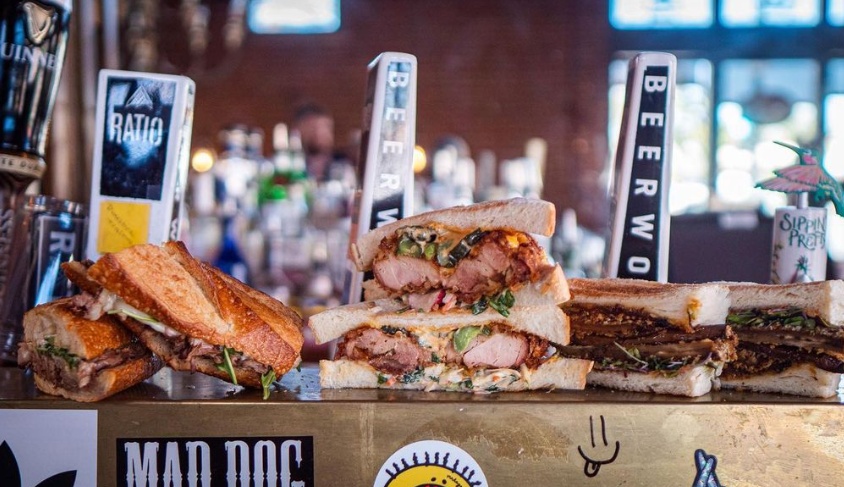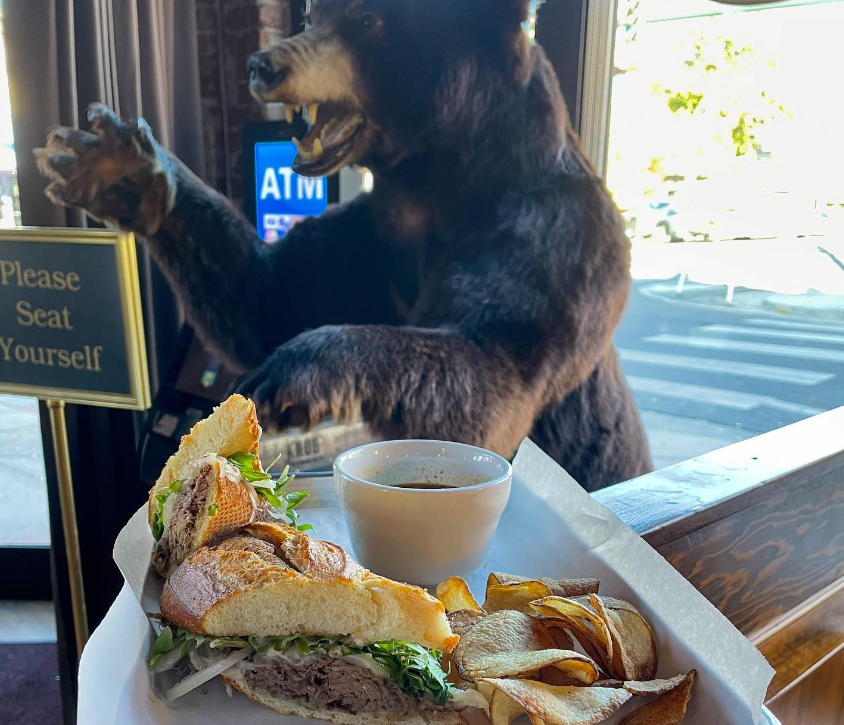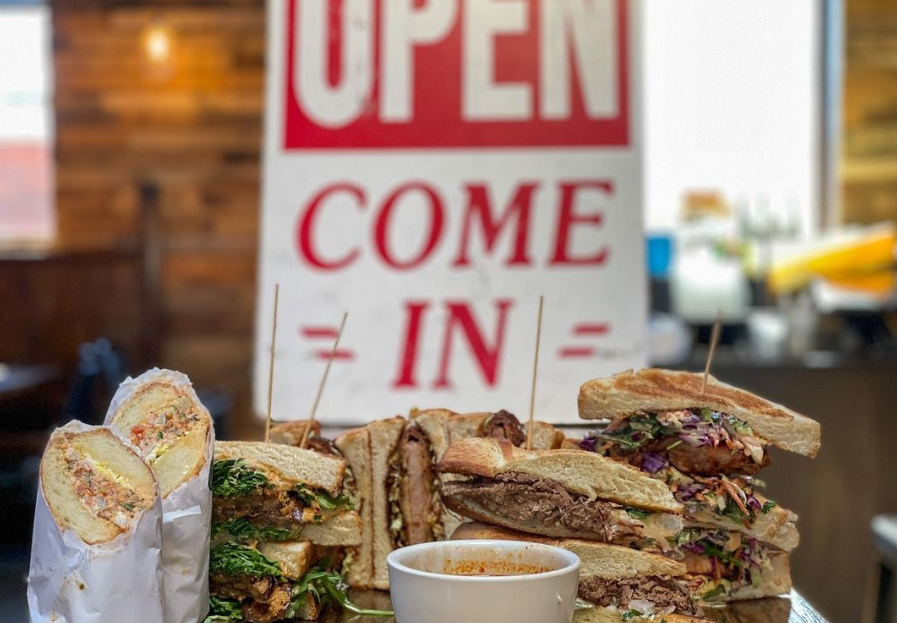
Open/Instagram

Audio By Carbonatix
“Food was garbage,” begins a one-star Yelp review left for Open, a sandwich shop that operates out of Goosetown Tavern at 3242 East Colfax Avenue. “Took 40 minutes to get a dismal display of what a sandwich should be. Ribs…please.”
On June 30, Open owner Jake Riederer posted that full review from user Bo D., as well as his response, on Instagram. “Online reviews have become more of a performance art than creating a space for restaurants to get better,” he says of his decision to start sharing his own take on Open’s reviews.
In his reply, he asked for more specific feedback, expressed confusion about the “Ribs…please” comment, and signed off with a sarcastic, “Bo Derek wants her name back.”
“It was frustration, probably, ” Riederer admits. “We’re out here doing the best we can in the weirdest economic time, and you’re armchair-quarterbacking.” With rising food prices and the cost of labor set to increase again when Denver’s minimum wage goes up in January, margins in restaurants are tighter than ever. And with so many longtime hospitality professionals leaving the industry since the pandemic, “there’s a more transient workforce now,” he notes. Before, most restaurants operated with a pretty solid, consistent crew, becoming a well-oiled machine and over time giving guests a certain level of expectations for their experiences.

The bear at Goosetown gives bad reviews one star.
Open/Instagram
Now, though, “the experience that your guests get is a little different than it was before,” Riederer admits. But that doesn’t mean he’s okay with serving “garbage.” Quite the opposite. “I still stand behind what we’re doing, even if it’s different,” he explains. “We’re living up to our end of the bargain. Sure, on occasion we fuck up. We’re human. But our business is the only one where if you fuck up, someone writes about it for the public to see.”
Over the last few weeks, Riederer posted two more negative reviews of Open, rating one “four out of five stars for its brevity, somewhat accurate description and proper use of parenthesis.” On the other, a one-star that simply said, “Rude, ignorant staff, period,” he again pressed for more specifics, but with a healthy dose of sarcasm. “We work hard to keep our staff from being rude (most of us partake in the regular legal use of cannabis) and ignorant (we all listen to NPR). Period,” he wrote.
But then, something unexpected happened. “It’s a lot of fun being snarky, but then we got this review, and it’s so beautifully written even though it’s only two stars,” Riederer says. “My job is to call out the assholes who don’t want this to be a constructive space, and also to lift up those being constructive. If you have constructive criticism, I want to hear it.”
The reviewer, Megan Nathan, explained what she’d ordered, what she specifically didn’t like about it and how it didn’t match the description on the menu. She also noted that she’d ordered via Uber Eats and was not rating her experience in the eatery, noting, “I can’t speak to the ambiance or the talent of the staff, which I’m sure are both great.”

Open/Instagram
In his reply, Riederer applauded Nathan’s review, rating it “five out of five stars” and expressing appreciation for alerting him to “possible holes in our process.” He also offered her a gift card so she could give Open one more try, on the condition that she use it in person.
After he posted the exchange on Instagram on August 23, the reviewer herself commented: “Round of applause for an establishment that so fully accepts reviews and wants to be the best it can be. I’m grateful for your open minded response and we will follow up to dine in and have full experience. We live in the neighborhood and understand the importance of helping local businesses succeed.”
A good review, like Nathan’s, “gives us actionable items in a non-attacking form,” Riederer says. “Make your review constructive and not sensationalist. Help us get better, don’t watch us fail.”
Platforms like Yelp and Google are powerful, and while many restaurant owners, operators and employees view them negatively, they cannot be ignored. “We have to figure out a way to work with it,” Riederer says. “We can either continue to bitch about it and get frustrated, or let’s actually try to create an interesting dialogue. I’ll continue to shame people that don’t take it seriously, but it can be useful if you actively want to be a part of our community and help us get better.”
While he’s finding ways to change his approach to online reviews as a business owner, Riederer reiterates that the very best way to address a negative experience in a restaurant is by speaking up in the moment. “Talk to a human. The likelihood that someone will say ‘Fuck you’ is zero. We’re just glad you said something, because you just saved us,” he explains. “We want to get it right, but we can’t correct things if we don’t know it’s wrong. This is a human endeavor. We’re gonna fuck up. We have to give ourselves the grace to do that, and the space to recover.”
Will you step up to support Westword this year?
We’re aiming to raise $50,000 by December 31, so we can continue covering what matters most to this community. If Westword matters to you, please take action and contribute today, so when news happens, our reporters can be there.